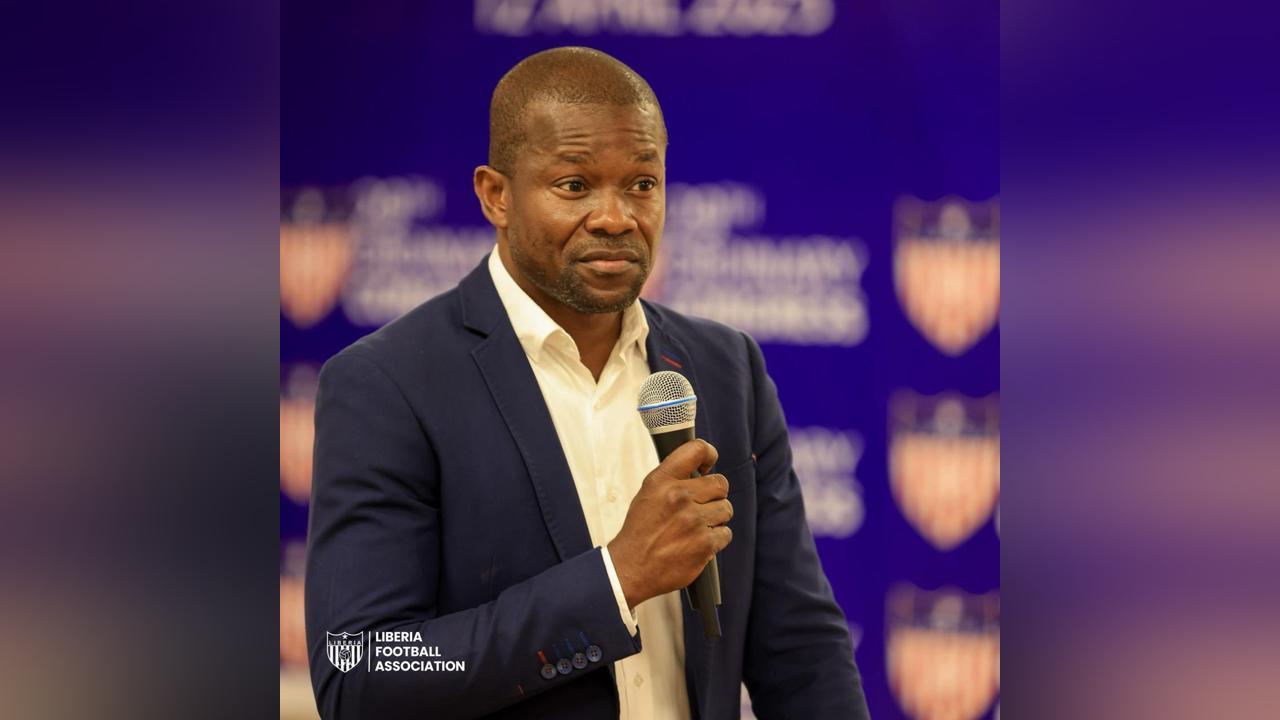Africa-Press – Liberia. Raji made the call during an appearance on a local radio station where he emphasized the importance of increased investment in the sport beyond the senior national teams.
The President of the Liberia Football Association (LFA), Mustapha Raji, has appealed to the national government to allocate US$5 million annually to support the growth and development of football across Liberia.
Raji made the call during an appearance on Punch FM, a Monrovia-based radio station, where he emphasized the importance of increased investment in the sport beyond the senior national teams.
“We need actors in government to help speak on behalf of us and other sporting federations because we control a larger population of the country which is the youth,” Raji said.
He highlighted the need for direct subsidies to club football, arguing that local clubs are the primary breeding ground for the talent that eventually feeds the national teams and the popular National County Sports Meet. According to Raji, the County Meet itself is a major revenue earner for the government, and thus, the clubs that develop the players deserve corresponding support.
“The national government is the owner of all the national teams, but unfortunately we were informed they can only provide support for the male and women senior national teams,” Raji added.
His comments come amid significant budgetary setbacks. Public financial records show that in the draft National Budget for 2025, football’s allocation dropped from US$150,000 in 2024 to just US$50,000, a dramatic 67 percent cut.
The government has previously responded to such criticisms. In November 2024, Emmett Stages Glassco, president of the LFA Upper Women’s Team and a vocal critic of Raji, defended the budget reduction. Glassco attributed the cuts to what he described as the LFA’s failure to submit detailed financial reports and present a clear football development plan.
Despite the financial challenges, Raji reaffirmed the LFA’s dedication to youth development and grassroots participation in football.
“We are managing to have the youth teams in competitions because football development starts from the grassroots level,” he stated.
He pointed to support from international programs like FIFA Forward, under which the LFA is set to receive vehicles and motorbikes to assist in grassroots operations and secretariat functions.
The LFA’s budget for the 2025–2026 fiscal year, approved at its 29th Ordinary Congress in April 2025, stands at US$5.7 million. Raji’s proposal for a US$5 million annual contribution from the government is aimed at complementing this budget and driving the LFA’s broader development strategy.
When asked about the budget cut, Deputy Sports Minister Andy Quamie said the decision was driven by financial constraints within the national budget.
“Yes, the government allocated only $550,000 for sports in the 2025 budget, and we cannot support all activities,” Quamie explained. “Liberia has 34 sporting federations, and the limited funds must be spread across all these organizations.”
He also noted that while FIFA provides financial assistance for the LFA, many other federations do not have access to similar external funding. He emphasized the need for caution in government commitments, particularly in light of the country’s current economic challenges.
“We do not want to commit to supporting all of the national teams, including the U-15, U-17, U-20, and U-23 teams, and later face a situation where there is no funding to follow through,” Quamie said.
The ongoing conversation between the LFA and the government underscores the broader issue of sports financing in Liberia and the critical need for transparency, accountability, and a shared vision for sustainable sports development.
Raji appealed for action. “We’re not just asking for support—we’re asking for investment in the future of our youth and the pride of our country,” he said.
For More News And Analysis About Liberia Follow Africa-Press






